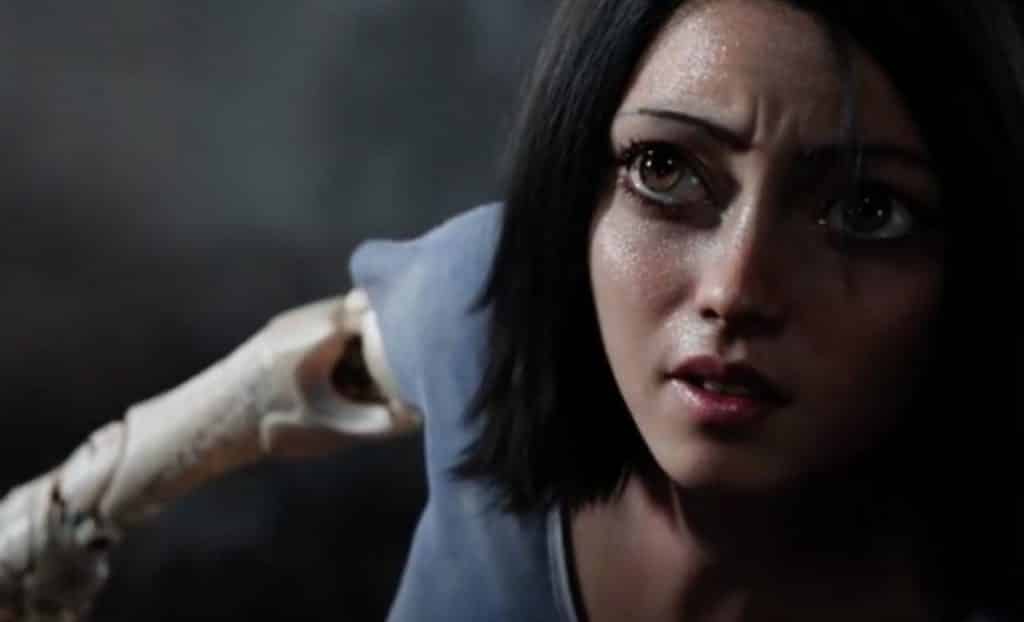Pairing together the directorial talents of Sin City’s Robert Rodriguez with the vision of Avatar’s James Cameron as a producer, Alita: Battle Angel certainly possesses a lot of promise on paper. While the film is admirable in its ideas and filmmaking prowess, the execution makes for one big dissatisfying mess of a film.
Based on the Magna series Battle Angel Alita, the film is set in a post-apocalyptic dystopia, where much of the population is stuck on the junkyard surface of Earth. In the junkyard though, a well-meaning robotics doctor discovers Alita, who possess the technology and abilities of a rare breed of robot. She goes on a quest to find who she is while fighting against the corruption on Earth.
Fox spent roughly 170 million dollars on Alita: Battle Angel, a decision that is not only questionable from a business perspective (projected to open with a mere 25 million this weekend), but also from a creative standpoint. Despite the film’s best intentions, its mystifying final product screams of a film that failed to ever find its own identity.
Alita isn’t an outright disaster, as there’s glimmers where the talent truly shines. Director Robert Rodriguez certainly doesn’t have the clout he once possessed, but I would label this as an admirable comeback effort for him. Visually the film is striking, creating a vast world that breathes with its own unique breed of details. The broken down world is filled with interesting landscapes and a plethora of bizarrely distorted robotics, as its a joy to discover what lies around every corner.
Rodriguez thrives the most when it comes to the action beats, which are accomplished in their thrills and scale. As a director, Rodriguez infuses each sequence with energy, keeping each setpiece moving at a brisk pace. The strong visuals combined with some steady filmmaking make for some satisfying moments, especially when the film gets shockingly brutal. Kids beware, this is a PG-13 film that features people getting cut in half and dying in brutal ways, and for some, the action will be enough to make up for the film’s flaws.
Considering just how bad the script is though, its hard for me to be be as accepting. James Cameron, Robert Rodriguez, and Laeta Kalogridis’ collaboration is a shock, as three talented people assembled one fairly poor script. While I appreciate the movie’s bleak universe and graphic violence, the movie never is able to pack substance to give its violence meaning. While I haven’t read the graphic novel, I can see where Alita could be a story of substance, a girl losing her innocence in a world where corruption and death is endless, but the script is either too hackneyed or lazy to truly care. It makes for a bizarre tonal cluster, a “popcorn” film where people are brutally murdered, its a hard sell for both kids and parents alike.
Story-wise, the film is all over the place. There are clearly attempts here to build a mythos that sets up for potential sequels, but these efforts feel forced throughout. The third act in particular is where this issue culminates, with the film being more interested in setting up the future sequels as it introduces new characters that subplots that leave the audience bewildered. The dialogue, like most Cameron scripts, is wooden as a tree, failing to give these characters anything interesting or realistic to say. It certainly says something when Oscar winning actors like Christoph Waltz, Mahershala Ali, and Jennifer Connelly can’t muster much magic with the script.
Alita: Battle Angel may have the look of a potential franchise, but it lacks soul. I credit star Rosa Salazar for trying to breath some life into Alita, but the character as a whole is written too generically to ever be captivating. The slap-dash script and breakneck pace never allow for a pause in the action, drifting from setpiece to setpiece with each getting more mind-numbing than the last. It’s clear that passion and hard work were put into Alita, but that effort was put in all the wrong places.

